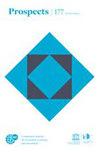忘却、再学习、与麻烦相伴:教育的情景与未来
Q1 Social Sciences
引用次数: 0
摘要
在动荡、不确定、新奇和模棱两可的时期,即所谓的金枪鱼条件下,我们过去的经验可能对我们的决定及其后果将展现的未来时代没有什么指导作用。在这种情况下,为给定的问题制造可能的未来情境,并通过挑战预期来丰富战略思维,有助于为决策和辩论提供信息。教育经常成为这类辩论的主题,因为它是为未来做准备的一种方式。本文介绍了将牛津情景规划方法应用于挪威学校教育数字化的一个情景项目的经验和教训。它表明,在遥远的想象未来背景下提出的具有挑战性的问题如何被证明与正在发展的Covid-19大流行具有直接相关性。本文将这项工作置于教育未来的更广泛背景下,以及为希望探索未来如何共同教与学的机构和社区提供合适的方法选择的持续辩论。随着广泛的行动者探索新的教育社会契约的可能性,本文提出,未来情景可以为在当前参考框架内难以甚至不可能解决的问题提供新的视角,包括在未来可能以不同方式解释的公平和正义问题。本文章由计算机程序翻译,如有差异,请以英文原文为准。
Unlearning, relearning, staying with the trouble: Scenarios and the future of education
Abstract In times of turbulence, uncertainty, novelty, and ambiguity—the so-called TUNA conditions—our experience of the past may prove a poor guide to the future times in which our decisions and their consequences will unfold. Under such conditions, the manufacture of scenarios that are plausible future contexts for a given issue and are designed to enrich strategic thinking by challenging expectations can help to inform decisions and debates. Education is often subject to such debates, as it is, among other things, a way of preparing for what the future holds. This article gives an account of learnings and unlearnings from a scenarios project applying the Oxford Scenario Planning Approach to the digitalization of education in Norwegian schools. It shows how challenging issues raised in the context of distant imagined futures proved to be immediately pertinent in the developing Covid-19 pandemic. This article sets this work in the wider context of education futures and ongoing debate about suitable methodological choices for institutions and communities wishing to explore how we will teach and learn together in times to come. As a wide range of actors explore the possibility of a new social contract for education, the article proposes that future scenarios can provide fresh perspectives on issues that are difficult or even impossible to resolve within current frames of reference, including questions of equity and justice that may be construed differently in times to come.
求助全文
通过发布文献求助,成功后即可免费获取论文全文。
去求助
来源期刊

Prospects
Social Sciences-Education
CiteScore
13.10
自引率
0.00%
发文量
37
期刊介绍:
Prospects provides comparative and international perspectives on key current issues in curriculum, learning, and assessment. The principal features of the journal are the innovative and critical insights it offers into the equitable provision of quality and relevant education for all; and the cross-disciplinary perspectives it engages, drawing on a range of domains that include culture, development, economics, ethics, gender, inclusion, politics, sociology, sustainability, and education.
Prospects aims to influence a wide range of actors in the field of education and development, whether academics, policy-makers, curriculum-developers, assessors, teachers or students. Unlike other journals in the field, which deal only with theoretical or research-related aspects, Prospects also focuses on policy implementation and aims at improving the extent and effectiveness of communication between theorists and researchers, on one side, and policy makers and practitioners, on the other.
The journal thus welcomes innovative empirical research, case studies of policy and practice, conceptual analyses and policy evaluations, as well as critical analyses of published research and existing policy.
Founded in 1970 and published in English by Springer, Prospects is among the most well-established journals in the field. Editions in Arabic and Mandarin Chinese are available as well.
The journal is edited by the International Bureau of Education (IBE), in Geneva. A leading UNESCO Institute and a global center of excellence in curriculum and related matters, the IBE is recognized and valued for the specialist knowledge and expertise that it brings to Member States, promoting new shared global understanding of curriculum, teaching, learning, and assessment.
 求助内容:
求助内容: 应助结果提醒方式:
应助结果提醒方式:


